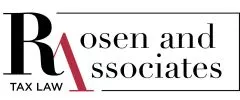In Fijal v. The King, the Tax Court of Canada addressed a complex tax dispute between the taxpayer, Mr. Fijal, and the Canada Revenue Agency (CRA) concerning income and deductions claimed on his tax returns. The case revolved around the CRA's reassessment of Mr. Fijal's income for several taxation years, leading to the taxpayer's appeal before the court.
Background
Mr. Fijal was engaged in various business activities, including self-employment ventures. After an audit, the CRA concluded that certain income had been underreported, and it disallowed several deductions that Mr. Fijal claimed related to his business expenses. The CRA's position was that the taxpayer had not adequately substantiated these expenses, leading to a significant reassessment of his taxable income.
Key Issues
The main issues in the case revolved around the following:
- Underreported Income: The CRA argued that Mr. Fijal failed to report all income earned from his business activities. The agency provided evidence suggesting discrepancies between reported income and bank deposits.
- Deduction Claims: Mr. Fijal claimed various deductions, including costs associated with vehicle expenses, home office expenses, and other business-related expenditures. The CRA contended that many of these expenses were not allowable under the Income Tax Act because they lacked proper documentation or were not incurred for the purpose of earning income.
- Burden of Proof: In tax matters, the burden of proof typically rests with the taxpayer to establish the validity of claims made on their tax returns (as Canada's tax system is a "self-reporting" one). The court examined whether Mr. Fijal could provide sufficient evidence to support his claims for both income and deductions.
Court Findings
The Tax Court analyzed the evidence presented by both sides. Mr. Fijal attempted to demonstrate that he had reported his income accurately and had incurred legitimate business expenses. However, the court found several deficiencies in his documentation:
- Inadequate Records: Mr. Fijal failed to maintain comprehensive records of his income and expenses. Many receipts were missing, and the documentation he provided was insufficient to meet the requirements set out in the Income Tax Act.
- Credibility of Claims: The court scrutinized the credibility of Mr. Fijal's assertions regarding his deductions. It noted inconsistencies in his testimony and the lack of corroborative evidence, such as invoices or contracts that could substantiate the claimed expenses.
- Assessment Methodology: The CRA had used reasonable methods to assess income based on available data. The court recognized the CRA's authority to make assessments via various indirect methods when taxpayers do not provide complete and accurate information.
Conclusion
In concluding its judgment, the Tax Court of Canada ruled in favor of the CRA, affirming the reassessment of Mr. Fijal's income and the disallowance of certain deductions. The court emphasized the importance of keeping detailed and accurate records for tax purposes and highlighted the taxpayer's responsibility to provide adequate evidence to support claims.
The decision in Fijal v. The King serves as a cautionary tale for taxpayers regarding the necessity of meticulous record-keeping and the need for clear substantiation of income and expense claims. It reinforces the principle that, without proper documentation, taxpayers' risk having their claims rejected, resulting in potentially significant tax liabilities. This case underscores the importance of understanding tax obligations and the critical role of accurate reporting in compliance with the Income Tax Act.
The content of this article is intended to provide a general guide to the subject matter. Specialist advice should be sought about your specific circumstances.



